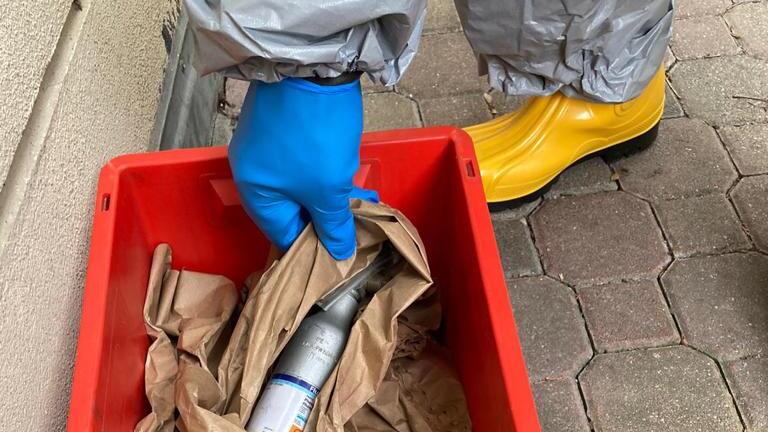Image: Armed Forces
On Friday, an employee of a waste disposal company near Gmunden discovered a suspicious gas cartridge with the inscription “Phosgene” on the company premises. The item was packed in a plastic container and taken to the Gmunden police station. When officials googled “phosgene,” there was a great deal of excitement. Because the gas is highly toxic. When inhaled, it reacts with water, creating hydrochloric acid that burns the lungs, resulting in an agonizing death. During the First World War, the substance was also used as a poison gas.
As reported, the Gmunden police and the surrounding buildings were evacuated for security reasons and ABC experts from the army were called in to help. The cartridge was taken to the Tabsch barracks in Korneuburg for examination. A spokesman said that a check was carried out there to determine whether it was the dreaded phosgene gas. No results were available as of Monday morning.
In any case, the alleged poison gas cartridge is not a war relic, says university professor Oliver Brüggemann from the Department of Chemistry and Plastics Technology at Johannes Kepler University after viewing a photo taken by the army of the cartridge found.
You can see the engraved logo of the Swiss company Fluka, which was taken over by Sigma-Aldrich in 1989. “But the old label was still in use years later,” says Brüggemann. Phosgene is an important building block for plastic products such as eyeglass lenses, DVDs, Blu-ray discs, windows in cars (headlights, panoramic roofs) and airplanes.
However, these plastic products are now being manufactured without phosgene using other processes, according to the expert. “As far as I know, phosgene is no longer used in Austrian industry.” Brüggemann suspects that it is a company’s old stock that has been disposed of.
The seller of the product must have registered who the buyer was. That is required by law. As a chemist, however, he cannot say how long these documents should be kept, says Brüggemann. You might be able to see the batch number in the engravings on the cartridge. “If the bottle was still full, then that was really a bad incident. This is not an everyday chemical. Anyone who comes into contact with the gas is in mortal danger,” warns the expert.
Source: Nachrichten




